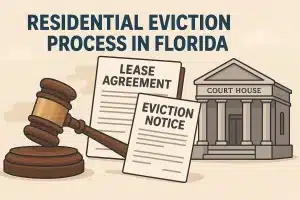
Law Blog
Major Changes in Florida Statutory Laws on Negligence Lawsuits

The law for comparative negligence also underwent a substantial change under the new legislation. Comparative negligence allows for a jury, or judge in a nonjury trial, to apportion fault based on the percentage of fault attributable to the plaintiff and defendant. For example, if a plaintiff is found to be 30 percent at fault, and the plaintiff suffered $1 million in damages, then his damages would be reduced by $300,000 to $700,000. Under the new law, if a plaintiff is more than 50 percent at fault, then the plaintiff gets zero. Thus, under the above example, if the plaintiff was 51 percent at fault, under the old law the plaintiff would receive $490,000 in damages. Under the new law, he would receive nothing. This is a major shift in the law and will benefit defendants and insurance companies. There is an exception in the new law for personal injury and wrongful death claims arising out of medical negligence. For these claims, the old comparative law remains in effect.
The information provided in this article does not, and is not intended to, constitute legal advice; instead, all information, content, and materials available in this article are for general informational purposes only. Information in this article may not constitute the most up-to-date legal or other information. Readers should contact an attorney to obtain advice with respect to any particular legal matter. No reader, user, or browser of this article should act or refrain from acting on the basis of information in this article without first seeking legal advice from counsel in the relevant jurisdiction. Only your individual attorney can provide assurances that the information contained herein – and your interpretation of it – is applicable or appropriate to your particular situation.
The views expressed at, or through, this site are those of the author writing in their individual capacity only – not those of Scott-Harris as a whole. All liability with respect to actions taken or not taken based on the contents of this site are hereby expressly disclaimed. The content on this posting is provided “as is;” no representations are made that the content is error-free.
recent post


Navigating Florida’s Residential Eviction Process | Landlord & Tenant Guide

Landlord Notice Requirements for Residential Lease Termination and Security Deposit Claims in Florida
recent post

Residential Eviction for Nonpayment in Florida | Tenant Court Registry Requirements

Navigating Florida’s Residential Eviction Process | Landlord & Tenant Guide










